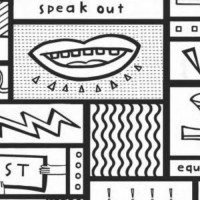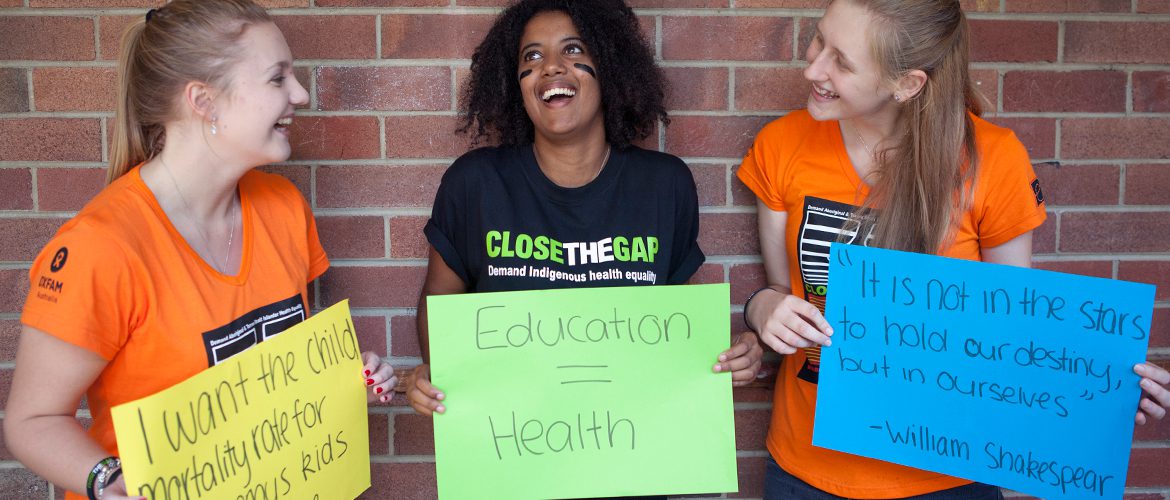Classroom resources
After more than 2 decades Oxfam’s school program has closed. Our commitment to tackling poverty and empowering communities continues. The resources on these pages will no longer be updated.
– September 2019.
Oxfam Australia’s classroom resources are available for use all year round, and support teachers and students to explore issues including:
- poverty, aid and development, Indigenous rights
- ethical business, corporate social responsibility, labour rights
- food security, global hunger, climate change
- social justice, active citizenship and more!
Our resources are produced in consultation with teachers, teacher associations and students, to ensure they are relevant, captivating, high-quality and in-line with current trends in pedagogy and technology. They are also developed in accordance with the Learn, Think, Act model of global citizenship.
Interested in understanding more about what FREE teaching resources Oxfam has available for the classroom? Click here to fill in the form and we’ll be in touch shortly.
Live Strong: Close the Gap
Live Strong is a free resource inspired by the Close the Gap campaign for Year 7–10 students studying the newly endorsed Australian Curriculum: Health and Physical Education. Created in collaboration with ACHPER, the resource helps students explore issues surrounding Aboriginal and Torres Strait Islander health.
Six Goals to Change the World
Discover our various resources exploring the human rights principles that guide Oxfam’s work around the world in a fun and accessible way. There’s a mindful colouring activity suitable for all ages, to promote student health and wellbeing, and the opportunity to order the free A3 colour printed posters, beautifully designed by Melbourne-based illustrator Steph Hughes.

Poster Design to Change the World
Free interactive education resources for Visual Arts, Media Arts, Design, English and HASS educators, exploring the history of campaign posters and the creative process behind campaign poster design.
Food for Thought
The world produces enough food to feed everyone. Yet, one in nine people on our planet go to bed hungry each night. Why does hunger exist in a world with enough food for all? Food 4 Thought is an interactive teaching resource for English (Yrs 7-8, 9-10) and Geography (Yr 9), to help students explore these and more questions. Includes animations, videos, blogs and more!
Power, People, Politics
A new, free, education resource for VCE Australian and Global Politics Units 1 and 2, and VCE Global Politics Units 3 and 4. Created in collaboration between Oxfam Australia and Social Education Victoria using real-world case studies from Oxfam’s work in Australia and overseas.
Learning about emergencies
This free resource explores disasters and what organisations like Oxfam do when they respond to emergencies. It encourages critical thinking and empathy-building in students, and supports students and schools to act thoughtfully as global citizens. Great for humanities, geography, civics and citizenship subjects.
Banking on Shaky Ground
A free education resource for Year 9 and 10 humanities, business, economics, commerce and civics and citizenship students. Fun and practical activities help students learn about the links between Australian banks and land grabs, and how young people can play an active role as consumers in advocating for ethical business practices.
Foreign aid and its importance in reducing poverty
What is foreign aid? Does it really reduce poverty? And is Australia doing its fair share? Our education resources, student activities, posters and more will help your students explore how Australian Aid improves the lives of millions. Great for Year 10 Geography and Civics and Citizenship.
Hands on health
A new, free, education resource for VCE Health and Human Development Units 2, 3 and 4. Created in collaboration between Oxfam Australia and ACHPER Victorian Branch, the resource uses real-world case studies from Oxfam’s work with Indigenous communities in Australia and overseas, our curriculum content and suggested learning activities engage students through unique and holistic perspectives on issues of Australian and global health and human development.
The new Global Goals
Oxfam Australia and UNICEF Australia have teamed up to create an education resource for primary and secondary Students to learn about the Global Goals. Students can write to their MP to tell them what these goals mean for them and the world they want to grow up in.
Behind the Brands
Oxfam has released its annual Behind the Brands scorecard review, which assesses the performance of the world’s 10 biggest food and beverage companies on issues such as women, workers, farmers, land, water and climate. The detailed site is a fantastic resource for business, commerce and economics teachers and students exploring corporate social responsibility, ethical business, global supply chains and more.
Country fact sheets
Oxfam Australia works in 30 countries across the world. Our fact sheets provide a postcard snapshot of some of these countries, and the inspiring stories of the people we work with.
Worksheet templates
Oxfam has a collection of worksheet templates for use in a variety of subjects, to help your students organise, make sense of and critically engage with information.
Online resource centre
Oxfam Australia’s online resource centre is a great place to find source materials for lesson plans and to recommend to students for research information. Browse and download Oxfam Australia’s quarterly magazine, policy, research and evaluations for free. Themes include: climate change, fair trade, gender, health, Indigenous Australia, mining and workers’ rights.













